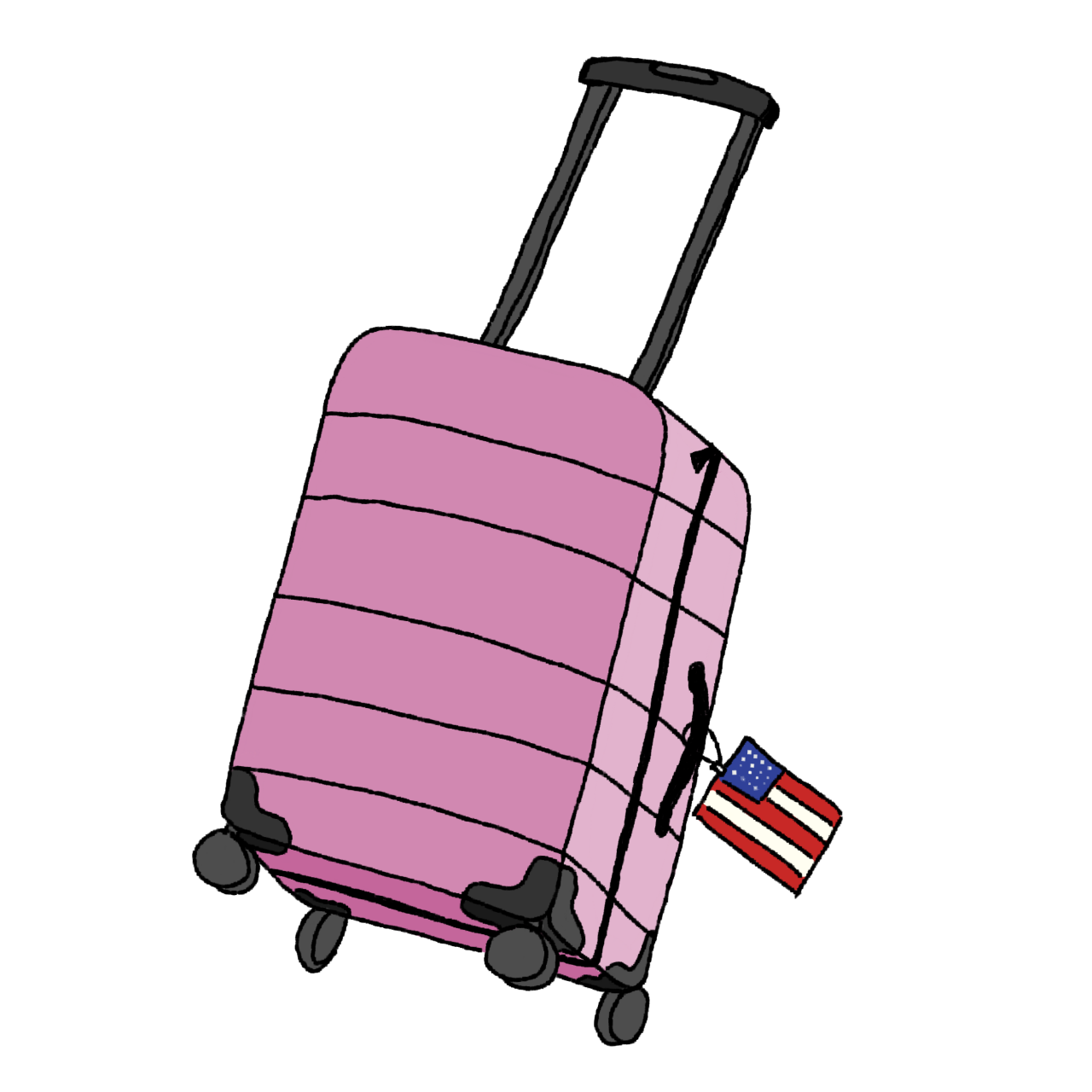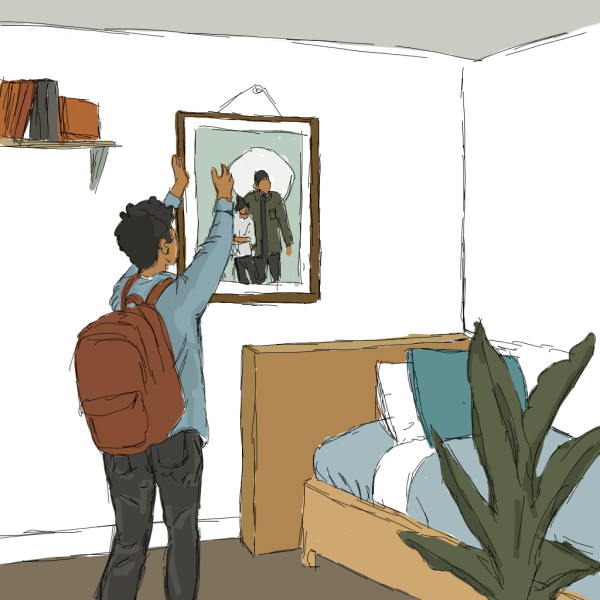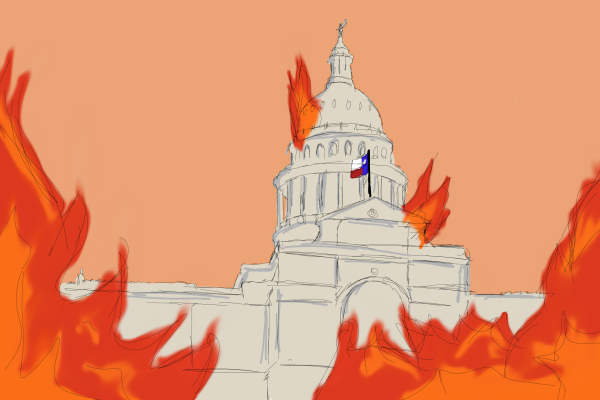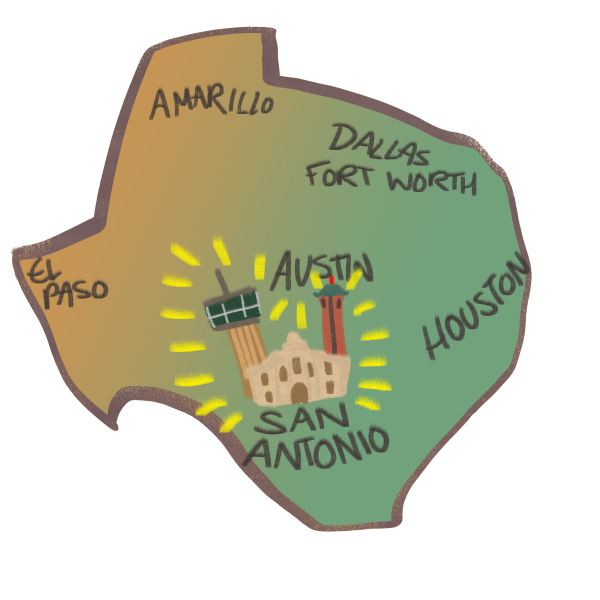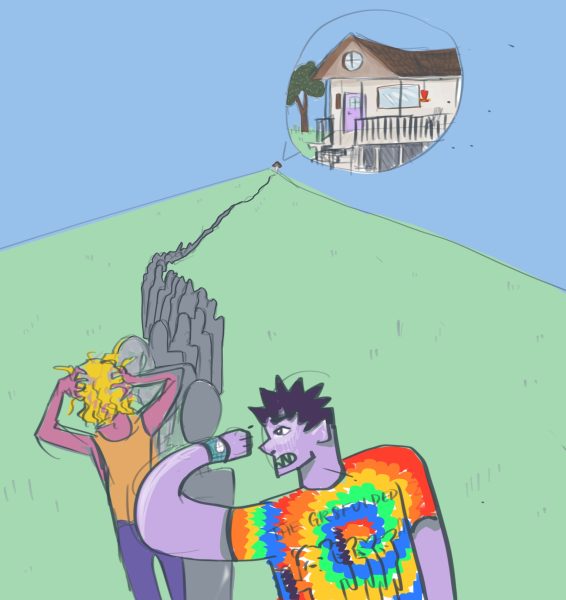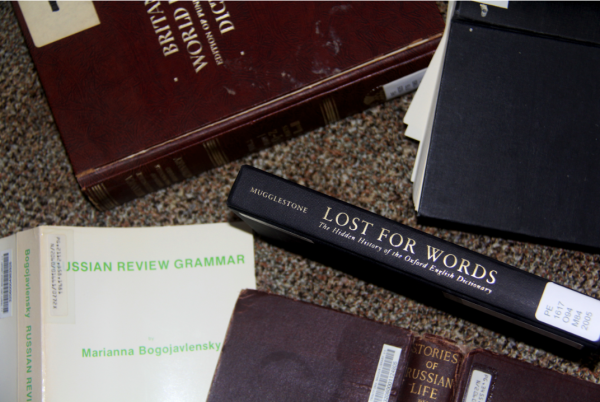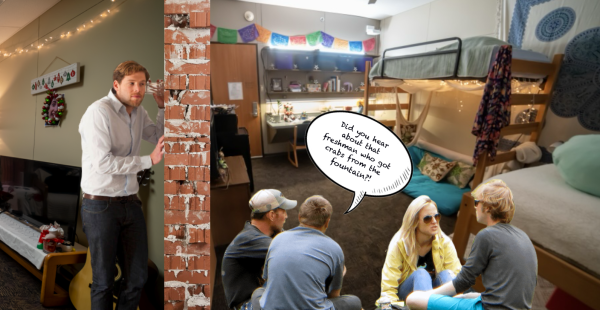The New American Expat Generation: At the Bottom of My Suitcase
illustration by Gracen Hoyle
When it comes to the term “expatriate,” many people differ on the definition. For me, it was the simple idea of not missing out on my chance to live life as fully as possible and as fairly as possible. Expats usually choose to leave their native country for a career boost or to fulfill a personal dream or goal, rather than as a result of dire economic necessity. This idea of choosing to relocate in the name of a dream resonates highly with millennial expats. While expats of all ages will share tangible reasons for relocating abroad, today’s millennials are being swayed by two surprising new factors: politics and wanderlust.
Most millennials are balancing the need for a job with intense wanderlust. Wanderlust is a German term that has become a pop culture identifier for anyone who considers themselves an avid traveler. With the rise of social media, the notion of wanderlust has spread like wildfire as every Instagram, Twitter and Facebook post reinforces the desire amongst us to book a flight. Politics, on the other hand, is a relatively new factor. The controversial U.S. presidential election has increased the appetite for Americans moving abroad, with New Yorkers being the keenest to relocate overseas. And sending millennials — a new voter force to be reckoned with — running for the hills; in this case, the hills of England and Canada where language is not an obstacle.
However, every country and person in the world should have the education and understanding of privilege, as well as the ability to question and discuss it as thoroughly as some Americans do. It is a lens that has successfully pushed forward social change, fueling some of the most impressive movements for social justice the world has seen, from women’s liberation to civil rights to LGBTQ+ pride. Everyone should be well-versed on the ins and outs of deconstructing privilege. However, America is not perfect in its deconstruction — at least not anymore. There is something markedly vicious about the hostility with which privilege is currently often discussed in the United States. An accusatory tone stews division between people where consensus might have otherwise been attained.
To this day, I am unsure at what point a society that champions individuality turned into one that picks apart every way people might be different from each other and then pits them one against the other. But labeling people and dividing them into groups seem to be deeply ingrained parts of America’s “I” culture. Within such a culture, it seems the ability for people to work together is often lost through unnecessary aggression and accusatory rhetoric. People become so caught up with obsessing over the trespasses of others that they forget to keep their own in check.
In my experience living in the United States, I have found a recurring myth that privilege is zero-sum; and a tendency to forget that privilege is always relative. I believe both of these inform themselves of notions of individuality. Taking a more holistic approach to understanding society as a whole helps deconstruct it. But privilege is not a zero-sum game! Nobody owns all the privilege in the world, although some people without a doubt feel entitled to a much larger portion than is fair. That being said, it is important to understand we all hold privileged and unprivileged positions in different aspects of our own life. And the wonderful thing is realizing this not only helps us relate to each other’s vulnerabilities but also allows us to understand that bringing together our differences can make us all stronger. We might be surprised to find a broad range of unlikely allies who can share in the superordinate goal of improving everyone’s life.
Privilege is also relative. When talking about development communication, people tend to look at the deficit side of developing nations while forgetting a surplus view of things. Even the most underprivileged citizen living freely in a first-world society is much more privileged than their counterparts in autocratic nations, developing nations or warring nations across the world. Poverty can mean job insecurity in one nation and food insecurity in another. No matter how privileged or underprivileged one might be, there is always so much one has to be thankful for. With privilege should come accountability, and we should all spend much more time looking down toward helping those below us as we do looking up with spite. There will always be someone above and someone below, and in some bizarre way, it is all interconnected.
Be it politics, wanderlust or career goals, millennials seem to have found the key to happiness: it’s at the bottom of the suitcase. And that’s where I found mine.

I am a native of Hanoi, Vietnam, and spent part of my childhood in Bangladesh and Cambodia. I am a senior majoring in Piano Performance and Communication,...

